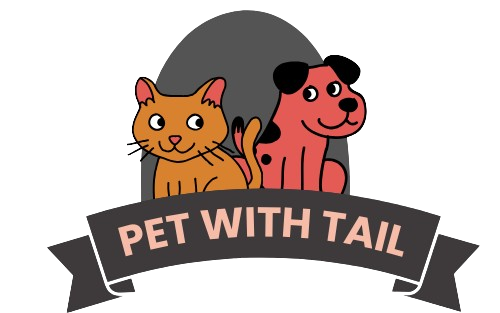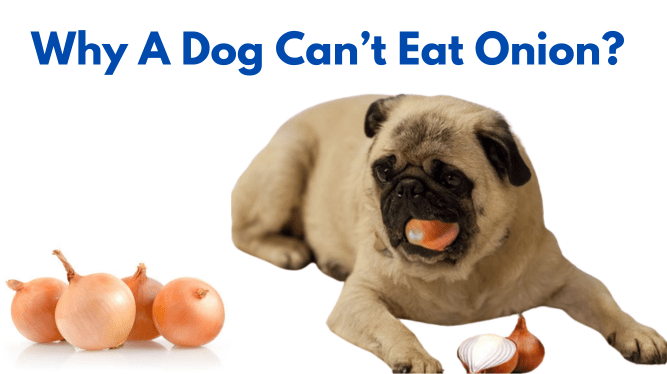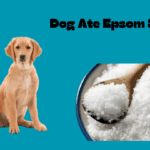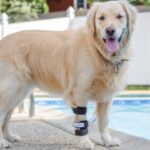Onions are a common ingredient in many dishes, but why a dog can’t eat onions? It can be very harmful to dogs. Onions contain a substance called thiosulfate, which can damage the red blood cells of dogs and cause a condition called hemolytic anemia.
Hemolytic anemia is a serious and potentially fatal disorder that reduces the oxygen-carrying capacity of the blood and leads to symptoms such as weakness, lethargy, pale gums, rapid breathing, and dark urine.
In this essay, we will explain, why onions are toxic for dogs how to prevent onion poisoning in dogs, what are the symptoms and treatment of onion poisoning, and what to do if your dog ingests onions.
Contents
- 1 Why a Dog Can’t Eat Onion? Due to the Toxic Effects of Onion
- 2 Is It OK If My Dog Ate Some Onions?
- 3 Is Onion Dangerous for Dogs?
- 4 Is Onion Poisonous for Dogs?
- 5 Symptoms and Treatment of Onion Poisoning
- 6 Why Does My Dog Poop Reddish If He Eats Onions?
- 7 Can Dogs Die from Onion Poisoning?
- 8 Can My Dog Eat Other Parts of Onion?
- 9 What If My Dog Eats Pizza with Onions?
- 10 Do Dogs Hate Onions?
- 11 Allium Plants and Dog Health
- 12 Onion Alternatives for Dog Food
- 13 Conclusion
- 14 FAQs: Why a dog can’t eat onion?
Why a Dog Can’t Eat Onion? Due to the Toxic Effects of Onion
Onion Toxicity in Dogs
Onions contain a compound called N-propyl disulfide that can damage the red blood cells of dogs and cause a condition called hemolytic anemia. This means that the dog’s body cannot produce enough healthy red blood cells to carry oxygen to the tissues. This can lead to weakness, lethargy, breathing difficulties, jaundice, and even death.
The amount of onion that can cause toxicity depends on the size and breed of the dog, as well as the type and form of onion. Generally, a dose of 0.5% of the dog’s body weight can be toxic. For example, a 10 kg dog can get sick from eating 50 grams of onion. However, some breeds, such as Akita and Shiba Inu, are more sensitive to onion toxicity and can get sick from smaller doses.
Dog owners are sometimes conscious of knowing whether can dogs eat onion rings. can dogs eat onion powder? Onion toxicity can occur from eating raw, cooked, dried, or powdered onions, as well as onion-flavored foods, such as soup, gravy, or pizza. The toxicity can also build up over time, so even small amounts of onion eaten regularly can cause harm.
Is It OK If My Dog Ate Some Onions?
If you suspect your dog has eaten onion, contact your veterinarian immediately. The veterinarian will perform a blood test to check the level of red blood cells and confirm the diagnosis. The treatment of onion poisoning may include:
- Inducing vomiting or giving activated charcoal to prevent further absorption of the toxin
- Giving fluids and oxygen to support the circulation and respiration
- Giving blood transfusions to replace the damaged red blood cells
- Giving antibiotics to prevent infections
- Monitoring the dog’s vital signs and blood parameters until recovery
The prognosis of onion poisoning depends on the amount of onion ingested, the time elapsed since ingestion, and the severity of the symptoms. Some dogs may recover within a few days, while others may need weeks or months of treatment. In some cases, onion poisoning can be fatal.
Is Onion Dangerous for Dogs?
Yes, onion is dangerous for dogs. Onion can damage the red blood cells of dogs and cause hemolytic anemia, which can be life-threatening. Onion can also cause other problems, such as:
- Gastrointestinal irritation and ulceration
- Liver damage and failure
- Kidney damage and failure
- Allergic reactions and anaphylaxis
- Asthma and bronchitis
- Seizures and coma
Therefore, onion should be avoided at all costs for dogs. Even a small amount of onion can cause serious harm to a dog’s health.
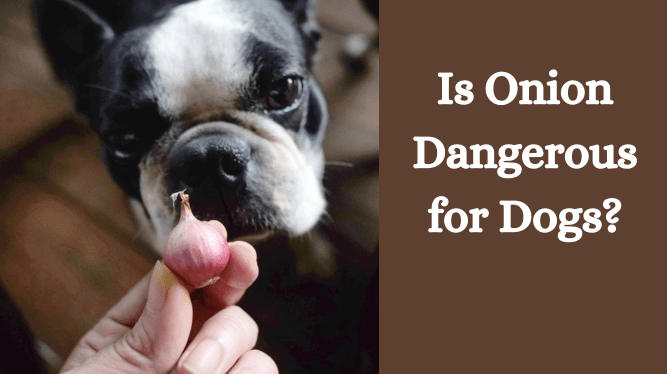
Is Onion Poisonous for Dogs?
Yes, onion is poisonous for dogs. Onion contains a compound called N-propyl disulfide, which can damage the red blood cells of dogs and cause hemolytic anemia. This can lead to oxygen deprivation, organ failure, and death.
Onion poisoning is not only caused by eating onion but also by inhaling or touching onion. Onion can release volatile compounds that can irritate the eyes, nose, and throat of dogs. Onion can also cause skin rashes and burns if it comes in contact with the dog’s skin.
Therefore, onions should be kept away from dogs at all times. The onion should not be stored, cooked, or served near dogs. Onion should not be thrown in the trash or compost where dogs can access it. Onion should not be used as a home remedy or a flea repellent for dogs.
The symptoms of onion poisoning in dogs may not appear immediately but can take several days to develop. Some of the common signs of onion poisoning are:
Symptoms and Treatment of Onion Poisoning
- Vomiting
- Diarrhea
- Loss of appetite
- Pale gums
- Rapid or irregular heartbeat
- Dark or red urine
- Collapse
If you suspect your dog has eaten onion, contact your veterinarian immediately. The veterinarian will perform a blood test to check the level of red blood cells and confirm the diagnosis. The treatment of onion poisoning may include:
- Inducing vomiting or giving activated charcoal to prevent further absorption of the toxin
- Giving fluids and oxygen to support the circulation and respiration
- Giving blood transfusions to replace the damaged red blood cells
- Giving antibiotics to prevent infections
- Monitoring the dog’s vital signs and blood parameters until recovery
The prognosis of onion poisoning depends on the amount of onion ingested, the time elapsed since ingestion, and the severity of the symptoms. Some dogs may recover within a few days, while others may need weeks or months of treatment. In some cases, onion poisoning can be fatal.
Why Does My Dog Poop Reddish If He Eats Onions?
If your dog eats onions, he may poop reddish or dark-colored stools. This is because onion can damage the red blood cells of dogs and cause hemolytic anemia. This can result in the breakdown of red blood cells and the release of hemoglobin, which is a red pigment that carries oxygen. Hemoglobin can then pass through the digestive tract and color the stool reddish or dark.
However, reddish or dark stool can also indicate other problems, such as:
- Bleeding in the stomach or intestines
- Infection or inflammation in the colon
- Parasites or worms in the gut
- Cancer or tumors in the digestive system
- Food intolerance or allergy
Therefore, if your dog poops reddish or dark stools, you should take him to the veterinarian as soon as possible. The veterinarian will examine the stool and perform other tests to determine the cause and provide the appropriate treatment.
Can Dogs Die from Onion Poisoning?
Yes, dogs can die from onion poisoning. Onion poisoning can cause hemolytic anemia, which can be fatal if not treated promptly. Onion poisoning can also cause other complications, such as
- Shock and collapse
- Heart failure and cardiac arrest
- Respiratory failure and suffocation
- Brain damage and neurological disorders
- Multiple organ failure, and septicemia
The mortality rate of onion poisoning in dogs depends on several factors, such as:
- The amount and type of onion ingested
- The size and breed of the dog
- The time elapsed since ingestion
- The availability and quality of veterinary care
- The presence of other health conditions or medications
According to some studies, the mortality rate of onion poisoning in dogs ranges from 10% to 50%. Therefore, onion poisoning is a serious and potentially deadly condition that requires immediate attention and intervention.
Can My Dog Eat Other Parts of Onion?
can dogs eat onion skin? can dogs eat onion can dogs eat onion spring? No, your dog cannot eat any part of the onion. All parts of onion, including the bulb, stem, leaves, flowers, seeds, and skin, contain N-propyl disulfide, which can damage the red blood cells of dogs and cause hemolytic anemia. Some parts of onion may contain more or less of the toxin, but none of them are safe for dogs.
Why a dog can’t eat onion? Some people may think that green onions or scallions are less harmful than regular onions, but this is not true. Green or scallions are immature onions that have not developed a full bulb. They still contain N-propyl disulfide and can cause toxicity in dogs.
Some people may also think that cooked onions are less harmful than raw onions, but this is also untrue. Cooking onions does not destroy or reduce the toxin, but rather makes it more concentrated and potent. Cooked onions can also contain other ingredients, such as salt, butter, oil, or spices, that can be harmful to dogs.
Therefore, your dog should not eat any part of the onion, whether it is raw, cooked, dried, or powdered. Any part of onion can cause toxicity in dogs and endanger their health.
Suggested: Can Dogs Eat Sun Chips?
My Dog Ate Grapes And Nothing Happened
Can Dogs Have Cream Cheese Icing?
What If My Dog Eats Pizza with Onions?
If your dog eats pizza with onions, you should take him to the veterinarian immediately. Pizza with onions can be very dangerous for dogs, as it can cause both onion poisoning and pancreatitis.
Onion poisoning can occur from eating the onions on the pizza, as well as the onion-flavored sauce, cheese, or crust. Onion poisoning can damage the red blood cells of dogs and cause hemolytic anemia, which can be life-threatening.

Pancreatitis can occur from eating the high-fat and high-calorie ingredients on the pizza, such as cheese, meat, oil, or butter. Pancreatitis is an inflammation of the pancreas, which is an organ that produces digestive enzymes and hormones. Pancreatitis can cause severe abdominal pain, vomiting, diarrhea, fever, dehydration, and shock.
Therefore, pizza with onions can be a double whammy for dogs, as it can cause two serious and potentially fatal conditions. You should never feed your dog pizza with onions, or any pizza for that matter. Pizza is not a suitable food for dogs, as it can cause obesity, diabetes, heart disease, and other problems.
Do Dogs Hate Onions?
Most dogs hate onions and do not like the taste or smell of onions, as they have a strong and pungent flavor and aroma. Dogs have a much more sensitive sense of smell and taste than humans, and they can detect the presence of onions in food or the air. Dogs may avoid eating onions or onion-flavored foods, or they may spit them out or vomit them up.
However, some dogs may not mind or even enjoy eating onions, especially if they are mixed with other foods that they like, such as meat, cheese, or bread. Some dogs may also eat onions out of curiosity, boredom, hunger, or greed. Some dogs may also eat onions accidentally, such as when they find them in the trash, on the street, or the table.
Therefore, dogs’ preferences for onions may vary depending on their personality, experience, and environment. However, whether dogs hate or like onions, they should never eat them, as they can cause toxicity and harm their health.
Allium Plants and Dog Health
Onions are not the only plants that can cause toxicity in dogs. Other plants from the same family, called allium, can also contain N-propyl disulfide and harm dogs. These plants include:
- Garlic
- Chives
- Leeks
- Shallots
- Scallions
- Spring onions
Garlic is especially toxic for dogs, as it contains a higher concentration of N-propyl disulfide than onions. A single clove of garlic can be enough to cause toxicity in a small dog. Therefore, you should avoid giving your dog any food that contains garlic or any other allium plant.
Onion Alternatives for Dog Food
You may wonder how to make your dog’s food more flavorful without using onions or garlic. Fortunately, there are many safe and healthy alternatives that you can use to spice up your dog’s diet. Some of these are:
- Parsley
- Mint
- Basil
- Oregano
- Rosemary
- Thyme
- Turmeric
- Ginger
- Cinnamon
These herbs and spices can not only add flavor and aroma to your dog’s food, but also provide various health benefits, such as improving digestion, boosting immunity, fighting inflammation, and preventing infections. However, you should use them in moderation and consult your veterinarian before introducing any new ingredient to your dog’s diet.
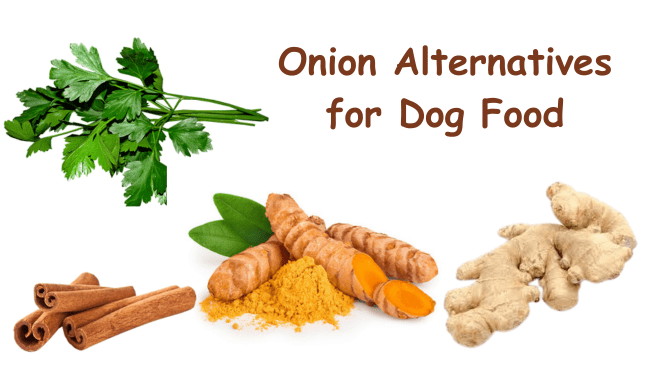
Conclusion
Onions are a delicious and nutritious food for humans, but they can be deadly for dogs. Why a dog can’t eat onion? Onions can damage the red blood cells of dogs and cause hemolytic anemia, which can lead to oxygen deprivation, and organ failure, onions, while a common and flavorful ingredient in many human dishes, pose a significant danger to our canine companions. The compound N-propyl disulfide found in onions can lead to hemolytic anemia in dogs, causing a range of serious symptoms such as weakness, lethargy, and even death. The severity of onion toxicity varies based on factors such as the size and breed of the dog, as well as the amount and form of onion ingested.
Preventing onion poisoning in dogs involves diligent management of their environment to ensure they cannot access any part of the onion plant, including cooked, raw, dried, or powdered forms. If ingestion does occur, prompt veterinary care is essential. Treatment may include inducing vomiting, administering activated charcoal, providing supportive care such as fluids and oxygen, and in severe cases, blood transfusions.
Furthermore, it’s crucial to be vigilant about other plants from the allium family, such as garlic, chives, and leeks, which can also be toxic to dogs. To enhance the flavor of their food without risking their health, consider using safe alternatives like parsley, mint, or turmeric.
Ultimately, while onions may be a staple in our kitchens, they have no place in a dog’s diet. Understanding the risks associated with onions and taking proactive steps to prevent exposure can help safeguard the health and well-being of our furry friends.
FAQs: Why a dog can’t eat onion?
Q: Why are onions toxic for dogs?
- A: Onions contain a compound called N-propyl disulfide, which can damage the red blood cells of dogs and cause hemolytic anemia. This means that the dog’s body cannot produce enough healthy red blood cells to carry oxygen to the tissues. This can lead to weakness, lethargy, breathing difficulties, jaundice, and even death.
Q: How much onion can cause toxicity in dogs?
- A: The amount of onion that can cause toxicity depends on the size and breed of the dog, as well as the type and form of onion. Generally, a dose of 0.5% of the dog’s body weight can be toxic. For example, a 10 kg dog can get sick from eating 50 grams of onion. However, some breeds, such as Akita and Shiba Inu, are more sensitive to onion toxicity and can get sick from smaller doses.
Q: What are the symptoms of onion poisoning in dogs?
- A: The symptoms of onion poisoning in dogs may not appear immediately but can take several days to develop. Some of the common signs of onion poisoning are:
- Vomiting
- Diarrhea
- Loss of appetite
- Pale gums
- Rapid or irregular heartbeat
- Dark or red urine
- Collapse
Q: What should I do if my dog eats onion?
- A: If you suspect your dog has eaten onion, contact your veterinarian immediately. The veterinarian will perform a blood test to check the level of red blood cells and confirm the diagnosis. The treatment of onion poisoning may include:
- Inducing vomiting or giving activated charcoal to prevent further absorption of the toxin
- Giving fluids and oxygen to support the circulation and respiration
- Giving blood transfusions to replace the damaged red blood cells
- Giving antibiotics to prevent infections
- Monitoring the dog’s vital signs and blood parameters until recovery
Q: How can I prevent my dog from eating onion?
- A: You can prevent your dog from eating onion by keeping it away from your dog at all times. You should not store, cook, or serve onion near your dog. You should not throw onions in the trash or compost where your dog can access it. You should not use onion as a home remedy or a flea repellent for your dog. You should also check the labels of any processed foods that you give to your dog, as they may contain onion powder or other onion products.
